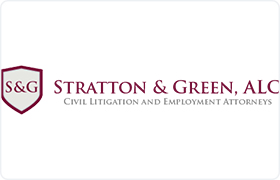Mentone Reorganization Lawyer, California
Sponsored Law Firm
-
 x
x

Click For More Info:
-
Stratton & Green, ALC
3703 Camino Del Rio S Suite 100B San Diego, CA 92108» view mapBankruptcy & Debt Law Exceptional Advocates.
Stratton & Green is proud to serve as a modern advocate, in that it takes an innovative approach by not only litigating cases through trial but whenever possible.
800-803-3091
Not enough matches for Mentone Reorganization lawyer.
Below are all Mentone Bankruptcy & Debt lawyers.
Kathleen Berns Albrektson
Estate Planning, Bankruptcy, Elder Law, Administrative Law, Trusts
Status: In Good Standing Licensed: 35 Years
Myron Wayne Tucker
Bankruptcy, Litigation, Personal Injury, Products Liability
Status: In Good Standing
M Wayne Tucker
Consumer Bankruptcy, Commercial Bankruptcy, Dissolution, Personal Injury
Status: In Good Standing
Betty Auton-Beck
Corporate, Estate Planning, Commercial Bankruptcy, Contract
Status: In Good Standing Licensed: 40 Years
 Sabrina Green San Diego, CA
Sabrina Green San Diego, CA Practice AreasExpertise
Practice AreasExpertise
